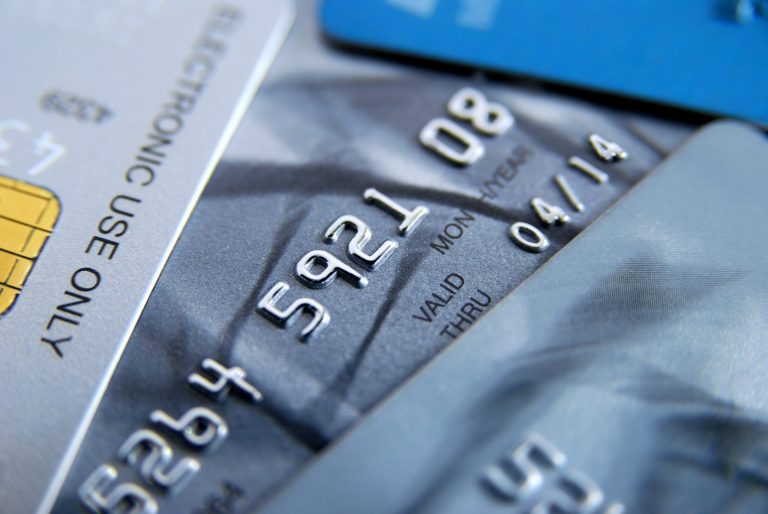Credit Card 101: Understanding Interest Rates and How They Affect Your Wallet
Credit cards have become an integral part of our financial lives, offering convenience and flexibility when making purchases. However, it is essential that you understand the key aspects of credit cards, especially interest rates, as they can significantly affect your financial well-being. In this article, we look at the basics of interest rates and how they affect your wallet.

What is an interest rate?
The interest rate is the cost of borrowing, expressed as a percentage of the principal amount. When you use a credit card, the issuer gives you credit, allowing you to make purchases up to a certain limit. If you do not pay the full balance by the due date, interest will be charged on the remaining balance, calculated at the applicable interest rate.
Types of interest rates
There are mainly two types of interest rates for credit cards: the annual percentage rate (APR) and the periodic interest rate. APR is the annual cost of borrowing, including the interest rate and any additional fees or costs. On the other hand, the periodic interest rate is the monthly cost of borrowing, which is derived from the APR.
Fixed vs. Variable interest rate
Credit card interest rates can be fixed or variable. A fixed interest rate remains constant over time, providing stability and predictability in monthly payments. In contrast, a variable interest rate is linked to an underlying benchmark, such as the prime rate, and fluctuates with changes in the key interest rate. While variable interest rates can be beneficial during periods of falling interest rates, they can also rise, resulting in higher borrowing costs.
Calculation of interest charges
Understanding how interest charges are calculated is essential to managing credit card debt effectively. Most credit card issuers use the average daily balance method, which takes into account your balance for each day of the billing cycle. To calculate the daily interest, divide the APR by 365 (or in some cases 360) to get the daily periodic rate. To determine the interest charges for a given day, we multiply this ratio by the average daily balance. By summing up the daily interest rates for the entire billing cycle, you get the total interest rate for the given period.
The impact on your wallet
Credit card interest rates have a direct impact on your wallet and financial well-being. If you carry a balance on your credit card and charge interest, your debt will continue to grow, potentially leading to a debt cycle that is increasingly challenging to get out of. High interest rates mean higher monthly payments, making it more difficult to pay off the debt and potentially result in a longer repayment period.
Also, credit card interest rates affect the total cost of your purchases. Let’s say you make $1,000 in credit card purchases at 18% APR and only pay the minimum amount each month. It could take several years to pay off the balance, and you’d end up paying much more than the initial $1,000 due to accrued interest charges.
Credit card debt management
To minimize the impact of interest rates on your wallet, it’s key to use smart strategies to manage your credit card debt:
- Pay in full and on time: Paying off your credit card balance in full each month avoids interest charges entirely.
Make more than the minimum payment: If you can’t pay the full balance, try paying more than the minimum amount due. This reduces principal more quickly and lowers interest charges. - Consider a balance transfer: If you have high-interest credit card debt, you can save money on interest charges by transferring your balance to a card with a lower interest rate. Be aware of the balance transfer fee and the duration of the promotional interest rate.
- Negotiate with your credit card issuer: In some cases, you may be able to negotiate a lower interest rate with your credit card issuer. This is especially true if you are a long-time customer with a good payment history. Contact your credit card company and ask about lowering your interest rate. Even a small reduction can make a big difference in the long run.
- Prioritize high-interest debt: If you have multiple credit cards with variable interest rates, focus on paying off the one with the highest interest rate first. By eliminating high-interest debt, you can save money on interest costs and speed up your debt repayment journey.
- Avoid Cash Advances: While credit cards offer the convenience of cash advances, be wary of the high interest rates associated with them. Cash advances often have higher interest rates than regular purchases and may incur additional fees. It’s best to look for alternative ways to get cash if needed.
- Improve your credit: Maintaining good credit can open doors to lower interest rates and better credit card offers. Pay your bills on time, keep your credit utilization ratio low, and don’t open too many new credit accounts. A higher credit score demonstrates responsible lending behavior and can help you secure better interest rates in the future.
- Read the fine print: Before applying for a credit card, carefully review the terms and conditions, including the interest rate structure. Pay attention to the introductory interest rates, promotional periods and possible changes in the interest rate over time. Understanding these details can help you make informed decisions and choose credit cards that meet your financial goals.
- Get professional advice if you need it: If you find that your credit card debt is overwhelming you or you’re struggling to manage your finances, consider seeking professional advice from a financial advisor or credit counseling service. They can provide personalized guidance and help you develop a plan to help you regain control of your finances.
In conclusion, understanding interest rates and how they affect your wallet is essential to responsible credit card use. High interest rates can lead to increasing debt and increased financial stress. By adopting strategies such as paying in full, negotiating lower interest rates, and prioritizing high-interest debt, you can minimize the impact of interest charges and take control of your financial well-being. Remember to use credit cards wisely and always check the terms and conditions associated with your cards.



